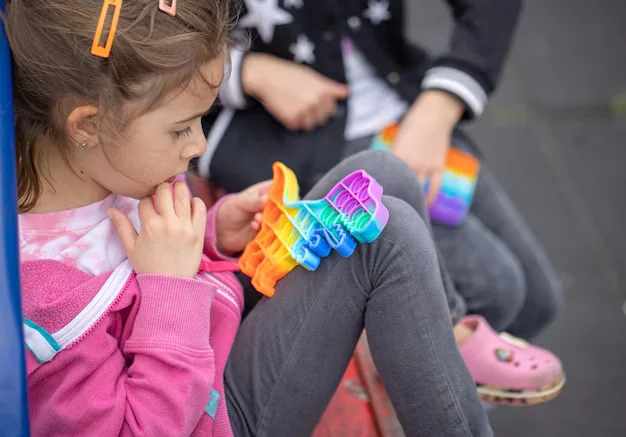10 Activities for Children with Autism (Asperger Syndrome)
Autism Spectrum Disorder (ASD) is a neurobiological disorder affecting brain function and the configuration of the nervous system. This manifests in difficulties related to communication, interaction with other people, thinking, and behavior. Children who fit into what was previously called Asperger syndrome require games and activities that help them understand emotions, train their social skills, and empathize.
The cause of ASD has not been determined at the moment, although it does seem clear that its development has a genetic implication. Everything surrounding this disorder is still not fully clarified, and some pieces are missing to complete the puzzle that allows us to understand it fully.
One of the points that make understanding ASD especially difficult is its heterogeneity. Although all people who receive this diagnosis have some essential characteristics, each individual’s manifestations can vary. Hence we speak of a spectrum. This means that not all people with autism are the same. They can have very different characteristics, and their evolution and adaptation will also depend profoundly on their support, intellectual level, and linguistic development.
Activities for Children with Autism
Previously, Asperger’s Syndrome was discussed as a clinical picture different from autism. However, today it is recognized that this is one more way autism manifests itself. Children in the area of the spectrum most similar to what was previously known as Asperger’s have difficulties in social interaction and communication, as well as restricted interests. For this reason, people began to talk about Autism Spectrum Disorder, thus contemplating the diverse nature of this disorder.
To achieve the well-being of people with ASD and their families, it is essential to receive specialized support that addresses the situation comprehensively with techniques based on scientific evidence. In this article, we will discuss some ideas for activities that can be carried out with these children by their relatives or therapists. However, they do not show intellectual disability and have a normative linguistic development, although it is true that handling aspects related to pragmatics is costly.
What are the Good Activities for the Kids with Asperger
First, it is essential to clarify some peculiarities of children with Asperger’s that determine the suitability of specific activities for them. First, we must consider that these children usually have restricted interests. This makes them really like talking and learning about them, becoming true experts in the field.
Using these preferences will help to link better with the little one and work pleasantly with the domains that interest us. It is also necessary to consider that they are logical and literal children, lovers of order and routine. For this reason, it is essential not to overwhelm them with activities that require many changes at once or a high command of the pragmatics of the language from the beginning. This requires progressive training with patience.
Lastly, these little ones often find it challenging to identify and understand their emotions and those of others. For this reason, it is convenient to resort to exercises that allow them to train in the Theory of Mind and emotional intelligence. Considering all these aspects, we will discuss some practical activities with children with Asperger’s.
-
Imitation Games
Helping these children to notice the expressions of others is very useful. An easy way to work on this is through imitation exercises. We can make different faces, actions, and expressions that they should imitate best. This activity can be fun, and it is also straightforward.
-
Emotions Cards
As we have been commenting, children with Asperger’s require training to identify and understand emotions. An easy way to do this is by using emotion cards. You can find some printable ones online or buy them. In any case, cards are a very versatile resource since they allow us to do different dynamics from them. They can be used for the child to choose one, make the corresponding expression, and ask him to describe the emotion on each card and when he last felt it…
-
Children’s Stories
Stories are another exciting tool for working with children with Asperger’s. With them, you can read stories that allow the child to learn to reflect on specific issues and apply what they have learned in real life. Talking about the characters helps to understand what they felt and why they acted in a certain way… Many children’s stories are published specifically designed for children with autism. Getting one can be an excellent idea.
-
Role Plays
Role-plays are another great way to help children with Asperger’s. It consists of making a small theater to promote their development of social skills, empathy, use of language, etc. You can be asked to play yourself in everyday situations or to recreate a character. Through these games, the child can be encouraged to recreate certain scenes. If a theme interests you, you can do the theater with costumes related to it to make it even more fun.
-
Movies
Movies are another handy resource to help older children with Asperger’s to reflect. We can select certain scenes in which an emotion is expressed and ask them to identify it and justify their response. You can also ask them what they would have done if they had been the character so that they learn to see the same scenario from different perspectives.
-
Crafts
Crafts are another great way to help children with autism. This activity allows them to relax, stimulates their cognitive development, and trains their fine motor skills and creativity. Many options can be used: plasticine, beads, clay, cut-outs.
-
Mime Games
Mime games are another exciting bet for working with children with Asperger’s. These types of activities are helpful to help them hone their nonverbal communication. In addition, it is a fun exercise that will make them have a good time. It consists of the child recreating actions, words, or movies for another person without using verbal language or resorting to gestures. Then, the roles will be reversed, and he must guess what the other person represents.
-
Presentation on a Topic of Your Interest
As anticipated, children with Asperger’s tend to have very restricted interests. Thus, they can become true experts in the topics they like. One way to help them promote their use of non-verbal language, their social skills, and their self-esteem is to propose that they make a presentation on the topic of their choice. Ideally, this exercise should be conducted with a small audience since the effect will be even more significant. In addition to being a lot of fun, it will allow them to fine-tune their way of communicating, paying attention to those aspects of language that cause them the most difficulty.
-
Physical Activity/Sports
Physical activity is an excellent ally for children with Asperger, as it allows them to improve psychomotor skills and train social skills. In the beginning, it’s essential that they don’t feel overwhelmed with too many rules and people around them. However, with progressive immersion, the sport can be an ideal activity to help them. Physical activity can also be carried out through games with simple rules since these encourage them to move and socialize.
-
Building/Construction Games
Building games with pieces are another ideal activity for children with Asperger’s. These types of activities greatly help stimulate their cognitive capacity in a fun way, as well as fine motor skills and creativity.
Conclusions
In this article, we have discussed some recommended activities for children with Asperger’s. Currently, the term “Asperger” is no longer used since this disorder is considered to be another expression of autism. Children who fit this profile show difficulties in social interactions, communication, and restricted interests. However, they do not usually show intellectual disability, and, in addition, they have a normative language (except for their difficulty in pragmatics and literality problems).
Many games and tasks can be done with these children to promote their maximum development. Among them, mime and imitation games help these children improve their nonverbal communication and social skills. Playing with construction pieces and elements is recommended because it also stimulates their cognitive development. Crafts are also interesting, which help them improve fine motor skills and encourage creativity.
Since these children often struggle to identify and understand their emotions, it is advisable to play using emotion cards and reflects with them about when they feel them and how they can express them. Stories are another highly recommended element since they can be helped to reflect on behavior and emotions and help them put themselves in another’s place through the stories and characters.



